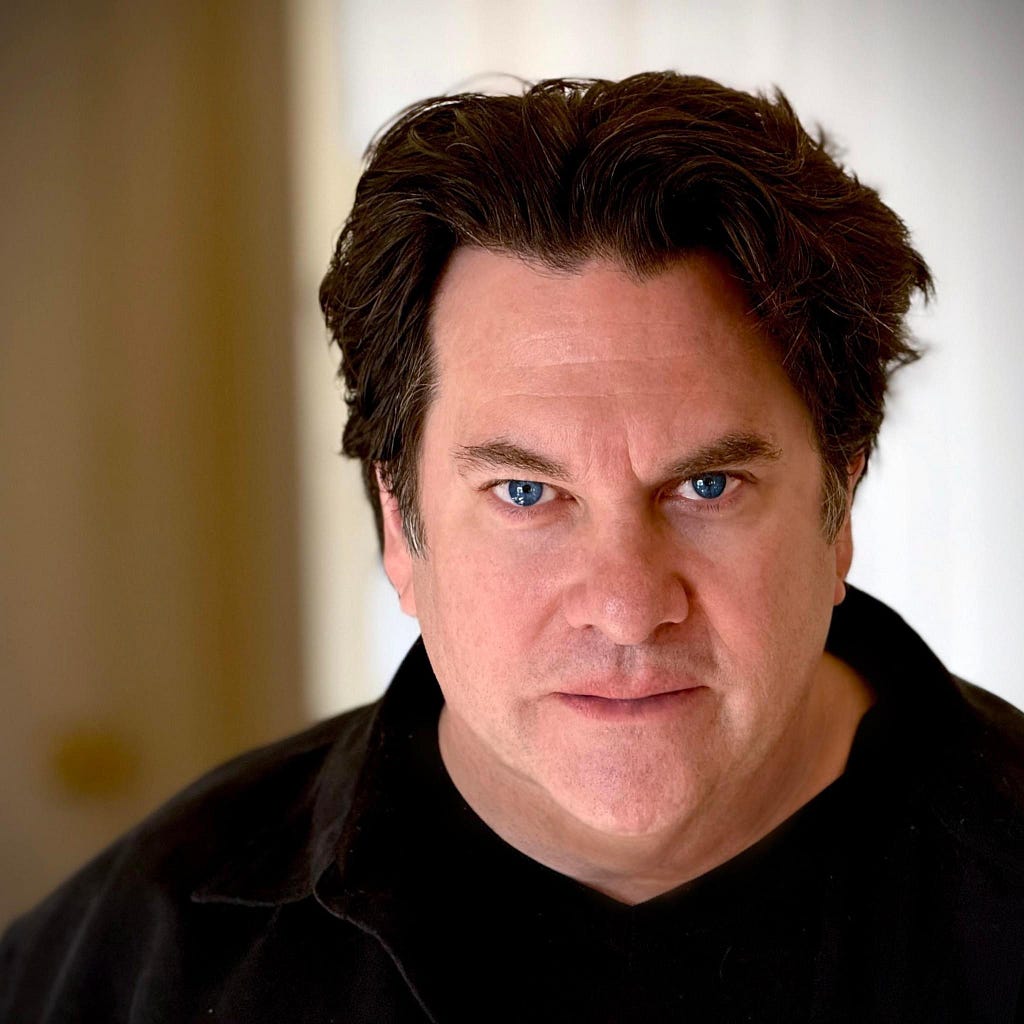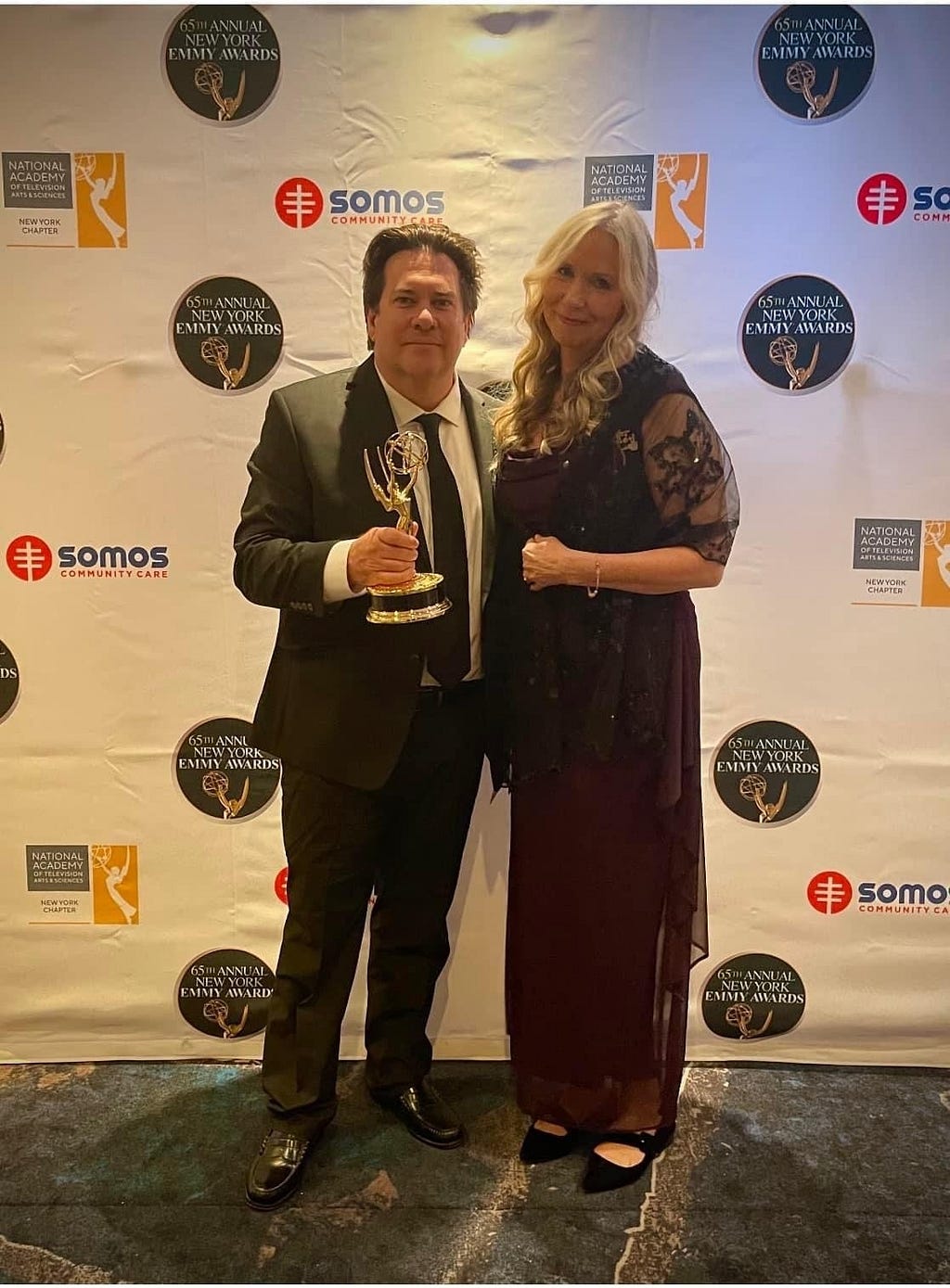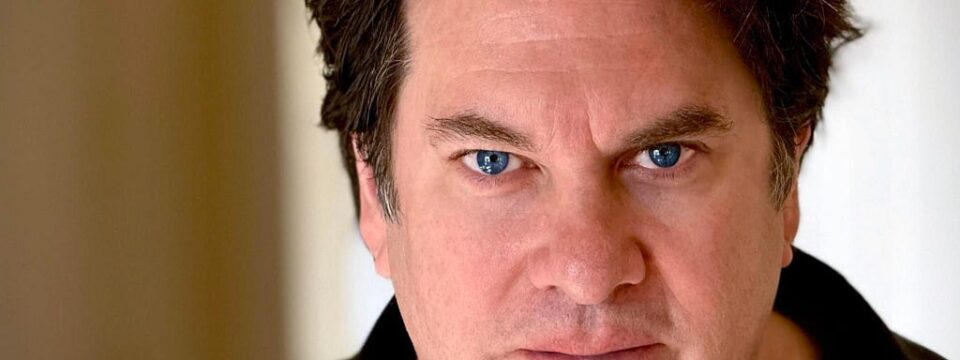Social Impact Heroes: Why & How John Rokosny of Their Stories Foundation Is Helping To Change Our World

If someone asks your opinion on something, that means they value what you have to say. Take the time to properly give feedback and make sure it is purely for the good of the project and not for any other reason.
As part of my series about “individuals and organizations making an important social impact”, I had the pleasure of interviewing John Rokosny.
John Rokosny is an award-winning Producer / Director with over 30 years of experience in Film, TV and Music. John’s most recent documentary, They Survived Together, (about the Neiger family’s miraculous escape from the Krakow Ghetto) won an Emmy Award for Best Historical Documentary from its airing on PBS. John’s new film in production, The Kid Officer, is also Holocaust themed.
Thank you so much for joining us in this interview series! Can you tell us a story about what brought you to this specific career path?
I was working odd jobs while pursuing a music career in NYC. While on a job, I met a man named Doug Wyles, who had a public service media company. Doug used one of my songs in a national TV spot and hired me to work for his company. He mentored me and trained me to become a producer and a director. We made hundreds of TV and Radio spots with all the top named celebrities of the day. Everything was for a charity or a cause, so I was educated at an early age that you could use media to help people.
Can you share the most interesting story that happened to you since you began leading your company or organization?
I think getting our film, “They Survived Together” on PBS was a true dream come true. And then to win the Emmy for Best Historical Documentary, that was just outrageous! I should say, though, that meeting the Neiger family and having them allow us into hearts and minds, and to tell their story of escaping the Holocaust as small children was the real interesting part. We were immersed in the family for years and it was heartwarming and heartbreaking all at once. The film took us to so many places, physically and spiritually.
It has been said that our mistakes can be our greatest teachers. Can you share a story about the funniest mistake you made when you were first starting? Can you tell us what lesson you learned from that?
God, there are so many! One time I was directing a spot for the American Cancer Society with Sarah Ferguson, the Duchess of York. The shoot went really well, she was super nice to everyone on the crew. When we wrapped, she was saying goodbye to everyone, and I insisted she wait and watch some of the playback because I was so pleased with how it went. When she saw the footage, she got beat red and irritated, and sternly said, “why didn’t anyone make sure my stomach wasn’t showing!” Why didn’t I leave well enough alone and let her leave in a good mood! Of course we had plenty of takes without her stomach showing but that is where the camera person happened to rewind to! Yes, lesson learned, leave well enough alone. Don’t be so proud of yourself! I worked with her several times, and she couldn’t be nicer. She made every single person on the crew feel special. That was a lesson, too.
Can you describe how you or your organization is making a significant social impact?
We are dedicated to telling stories that people need to hear. Right now, our focus is the Holocaust and making films about survivors. World War 2 and specifically the Holocaust is by far the most important and tragic time in history. No matter how much you read about it, or learn about it, it never makes any sense except that pure evil took over a society and brainwashed them. I am fascinated by the endurance and bravery of the Jewish culture, then and now. The recent rise in antisemitism is alarming. It is re-traumatizing the survivors, I know that for a fact. We’ve interviewed more the 50 survivors, and every single one has said they are living in fear again. I hope we can expose the younger generations to these stories and have them learn about the Holocaust in a deep way, not just facts and figures.
Can you tell us a story about a particular individual who was impacted or helped by your cause?
The daughter of the one of the survivors in our film “They Survived Together” said that she watched the film together with her father (our subject) and when it was over he said to her, and I’m paraphrasing now, “you see why I couldn’t be a good father”. She said they cried together and finally had an open conversation about their feelings and their relationship — and it changed forever after that, until his passing. That was worth everything. We have had a lot of people at our screenings open up about their family’s story, it’s been a spiritual journey, that’s about all I can say.
Are there three things the community/society/politicians can do to help you address the root of the problem you are trying to solve?
It’s so complicated to get people to realize their world view is bigoted. People are falling prey to propaganda. When it comes to antisemitism, there seems to be a different standard. Slogans that are obviously calling for the elimination of Jews are being sung like songs. It’s horrible. People just have to keep calling it out for what it is, antisemitism, plan and simple. Just keep fighting back, that’s all. Education. Education. Education — those are my three!
How do you define “Leadership”? Can you explain what you mean or give an example?
Leadership, for me, is letting your team do their job and show their strengths. Listen to what everyone on your team has to say and then make your decision. You hire a person because they are best suited for your project, so let them feel free to express themselves artistically, and not be afraid to make a mistake. Joe Torre had one of the most talented teams in baseball when he coached the Yankees. He could basically sit in the dugout and let them play until it was absolutely necessary for him to make a decision and change courses. He also made everyone feel good about themselves. If you’re lucky, you’ll have that kind of leader and team!

What are your “5 things I wish someone told me when I first started” and why. Please share a story or example for each.
1 . If someone asks your opinion on something, that means they value what you have to say. Take the time to properly give feedback and make sure it is purely for the good of the project and not for any other reason.
2 . Talk to the elders. They have all the life experience and would probably like to share it when asked. I always did this by nature, and I also wish someone had told me how important the senior members of society are. I had my best conversations with elder folks. They have wisdom and experience in all facets of life.
3 . You can get influences on your work from just about everything not just the things that are specifically related. I’ll watch a film that has nothing to do with my subject and see something that I can use. I remember reading Martin Scorsese say, “every film has one brilliant moment” and I try to look for that in art, music, film, literature — you can always learn something and relate it to what you are doing.
4 . As with the elders in our society, the youth have a lot to offer — especially energy. I feel energized by young people and love to hire youthful energy and insight when possible. Also, get their opinions on things — they offer a different generational opinion that can be very valuable.
5 . Think long and hard about what it means to be true to yourself. Also, have a partner or confidant that knows you well, to bounce ideas off of.
You are a person of enormous influence. If you could inspire a movement that would bring the most amount of good to the most amount of people, what would that be? You never know what your idea can trigger. 🙂
We have enough money and resources in the world for everyone to be fed, housed, clothed and educated. There would be a lot less hatred and fear if everyone was living a comfortable life. We just need people who have power, money and influence to feel the same way.
Can you please give us your favorite “Life Lesson Quote”? Can you share how that was relevant to you in your life?
“Be kind, for everyone you see is fighting a hard battle”. When you talk to people and get to know them, and really listen, you’ll be surprised what you find out about them, and yourself.
Is there a person in the world, or in the US with whom you would like to have a private breakfast or lunch with, and why? He or she might just see this, especially if we tag them. 🙂
Steven Spielberg because he is a master filmmaker and he founded The Shoah Foundation. I would definitely prepare my questions for that one!
How can our readers further follow your work online?
TheirStoriesFoundation.org
This was very meaningful, thank you so much. We wish you only continued success in your great work!
Social Impact Heroes: Why & How John Rokosny of Their Stories Foundation Is Helping To Change Our… was originally published in Authority Magazine on Medium, where people are continuing the conversation by highlighting and responding to this story.
